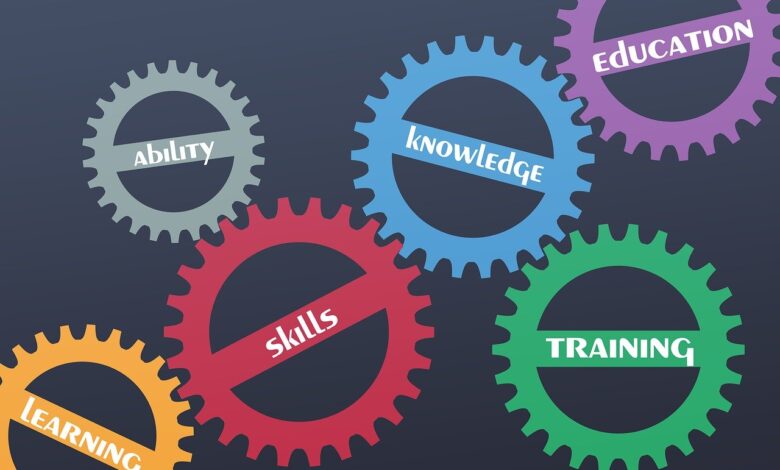Advanced Programming Skills Techniques to Master Step-by-Step

Advanced Programming Skills, The more you climb up in your programming journey, the greater becomes the importance of mastering advanced skills in programming, as you have to handle more complex challenges, and for bettering the prospects of your career. Advanced skills help you to write efficient algorithms, build scalable applications, and make meaningful contributions to large projects. This tutorial will walk you through step-by-step techniques on how to raise the bar of your coding skills and make you a proficient programmer.
Strengthening Your Foundation
Cover advanced concepts only after you get a good feel for the basics of programming. The basics include data structures, algorithms, and the basics of coding. Review these areas with more depth. Reinforce this base through textbooks, online courses, or even coding challenges. A strong foundation will enable you to better absorb topics of higher order and put advanced skills more easily into practice.
Introduction to Data Structure and Algorithms
Advanced programming is built around the understanding of data structures and algorithms. These allow for a methodical approach in the ways to structure data and solve problems. First, start with simple data structures: arrays, linked lists, trees, and graphs; then advance into algorithms on sorting, searching, recursion, and more. Practice concrete implementation through coding exercises and challenges on LeetCode or HackerRank.
Learning Design Patterns
Design patterns give time-tested solutions to common software design problems. Familiarize yourself with popular design patterns, such as Singleton, Observer, and Factory. Your awareness of these patterns will set you on the road to writing understandable and maintainable code. Practice using them during projects to realize how they improve your coding style. Also, with practice, you will intuitively apply these design patterns while attempting to view problems.
Version Control Systems
Version control systems like Git are important for managing changes to code and creating collaborative efforts. Learn to effectively use Git through the commits, branching, and merging commands that show its full power. Understand platforms like GitHub for hosting your projects and collaborating with other developers. Your mastering of version control will have the effect of smoothing your workflow and will also prepare you for professional development environments.
Contributing to Open-Source Projects
Contributing to open-source projects is one of the great ways to put into practice your advanced skills in programming. You can find open source projects that relate to your areas of interest or proficiency on sites such as GitHub. You can start by fixing bugs or adding features, then go ahead to take more complex tasks. Working with other developers introduces you to different ways of coding and creates valuable networks.
Test-Driven Development
TDD stands for the development of code with consideration of tests first. This practice will keep your code maintainable, bug-free, and always meeting certain requirements. Familiarize yourself with testing frameworks for your preferred programming language-be it JUnit for Java or pytest for Python. Get accustomed to writing tests parallel to the development of your codes to achieve better quality and more confidence in your work.
Scoping Software Development Methodologies
Advanced programmers should understand multiple software development methodologies, such as Agile, Scrum, or Kanban. In summary, these methods provide a framework as to how projects should best be managed to accommodate change. Being familiar with their principles and practices will serve to enhance collaboration in your small groups and make you adaptable. Understanding development methodologies prepares you for different work environments and team dynamics.
Deepen Your Knowledge Regarding Databases
Advanced programming requires one to have an understanding of databases, as most applications depend on data. Know the different types of databases: relational or SQL and nonrelational or NoSQL databases. Also, learn how to design database schemas for efficiency and write complex queries. Familiarize yourself with database systems such as PostgreSQL or MongoDB that will further enable your skills to develop data-driven applications.
Code Optimization and Performance
Advanced programmers should be capable of writing effective code and optimizing it. Learn various techniques to enhance code performance, such as time and space complexity reduction. Be familiar with profiling tools to help identify hotspots in your code. Regularly review and refactor your code to meet performance standards. Optimization-oriented thinking will make you more productive and competitive as a programmer.
Staying Up-to-Date and Participating in the Community
The field of technology is ever-changing. Thus, it is always good to know about the current trends, tools, and technologies at a given period. Follow all programming blogs, podcasts, and forums for updates. Meetups, conferences, and webinars will help you connect with other developers whereby you can be able to share your knowledge. Engagement with the community provides great insight into what works and what does not, in addition to allowing you to network and motivating you toward furthering your learning process.
Conclusion
Mastering advanced skills in programming is quite rewarding yet challenging. Reinforce your basics, study data structures and algorithms, design patterns. Contribute to open-source projects, utilize test-driven development, and learn about databases. Observe optimization problems and stay in touch with other programmers. In this way, you can develop your coding skills and will handle any tricky situation with confidence by putting in much effort with the right approach.



r9iz3l